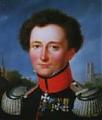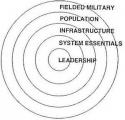(Mostly amateur philosophizing follows...)
Having worked individually with large cross sections of college students, I can attest that variation in ingrained personality traits can make a big difference in how to deal with people. (Common sense, yes, but can we do anything constructive with it?) I've encountered only one or two people who were genuine sociopaths -- and it was quite an experience. They lied like they breathed air, and seemed to have no conscience about it at all. I would not consider negotiation with such people to be worthwhile at all; containment is the only thing that can be done. The trick is making accurate identifications.
Does the military routinely use personality tests like the Myers-Briggs and/or Keirsey? I've read that the most common types in the military are ESTJ and ISTJ (more organizationally oriented, good at orders), and ENTJ and INTJ (more intuitive, good at leadership and strategy).
One online version is here:
http://www.humanmetrics.com/cgi-win/JTypes1.htm
RJO (INTJ)








Bookmarks